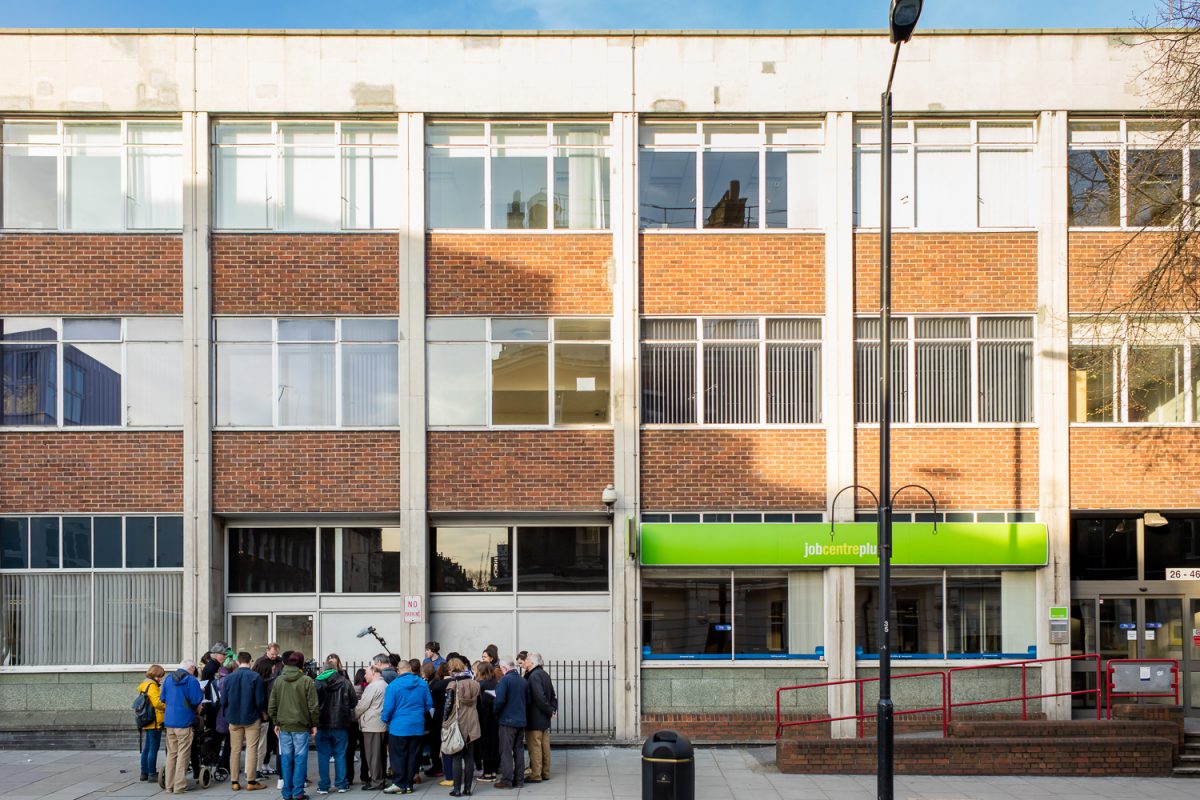A major new commission by Japanese artist Koki Tanaka, which was his first solo exhibition in the UK.
Working with collaborative processes, Tanaka’s project departed from his curiosity about the local histories of The Showroom’s neighbourhood, Church Street. Through a series of collective actions involving a range of contributors, including local historians, senior citizens and school children, Tanaka suggested a composite approach towards how to read the present through the past, and about how these can be starting points for new social possibilities.
The staging of collective actions has been a central component of Tanaka’s work to date. Through sometimes seemingly absurd tasks – ranging from collective haircuts to piano playing and tea making – he develops scenarios where group dynamics and behaviours expose how multiplicity is a central part of contemporary experience. Tanaka sets up situations and allows them to play themselves out; believing that how we behave in a micro-society has implications for society has a whole.
More…
…
At The Showroom he approached the local vicinity as an archive of historical knowledge and events that retain a presence, and summoned these through communal actions and proposals in the lead up to and during the exhibition. Historical instances included the subversion of licensing laws when theatre goers had to swap buns for theatre tickets; brewing on the site of Paddington Green police station; the heavy bombing of the area in World War 2; the history of The Showroom’s building when occupied by the Palmer Tyre Company, who produced wheels, tyres, brakes and gun turrets for wartime fighter and bomber aircraft; and more recent histories of migration.
The actions and proposals included:
Local History Research Tour Towards The Green Man Pub
A group tour of local historical sites, including the war memorial on Hatton Street, ending at The Green Man pub.
Reading Aloud People’s Names in the Community
Pupils from King Solomon Academy compiled a list of names of people in the community – such as shopkeepers, stallholders and school canteen workers – for a Roll Calling performance at Church Street market, referencing acts of communal remembrance.
Eating the History, Reflecting the Present (Who’s Victory?)
Leading out of Tanaka’s interest in ‘victory gardens’ which were set up during World War 2 to help feed the nation, local residents worked with the artist to make food for The Showroom’s neighbourhood networking lunch, using wartime recipes and ingredients that were typically grown in victory gardens. The group ate surrounded by film footage of air raids, the sound of contemporary bombing raids, and tyre fragments referencing The Showroom building’s former use during the war.
Durational Proposal: Walking as Someone Else or Someone Who Lived a Long Time Ago
Precarious Tasks #15: Exchange of our Clothes and Books as Exchanging our Body and Thoughts (Reconfiguration)
By bringing a favourite possession to pass on to another person, visitors could share in and take care of someone else’s personal history.
The outcomes of these works, as well as those of earlier actions by Tanaka, were presented in the gallery as film, audio, billboard images and text within a specially designed installation of temporary structures.



